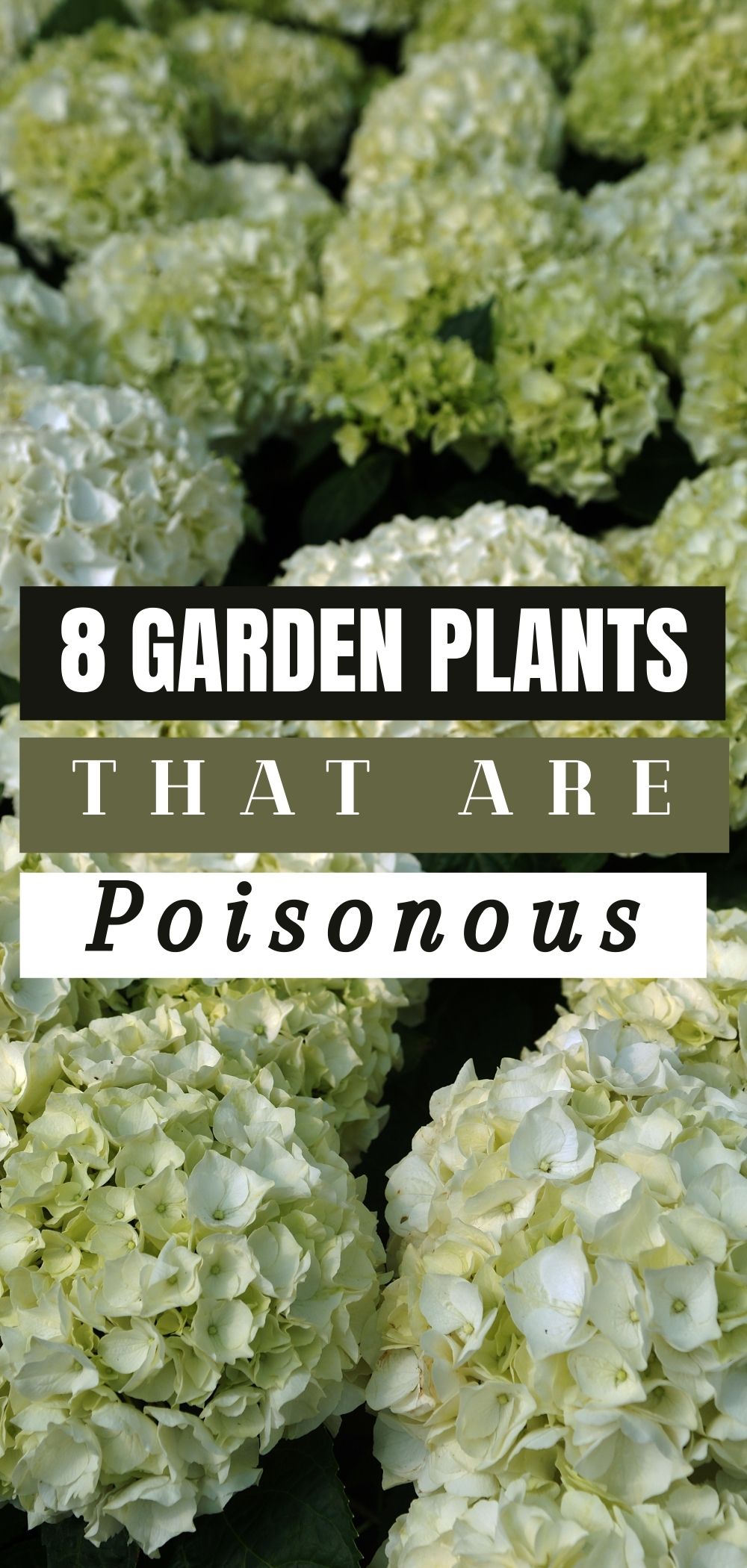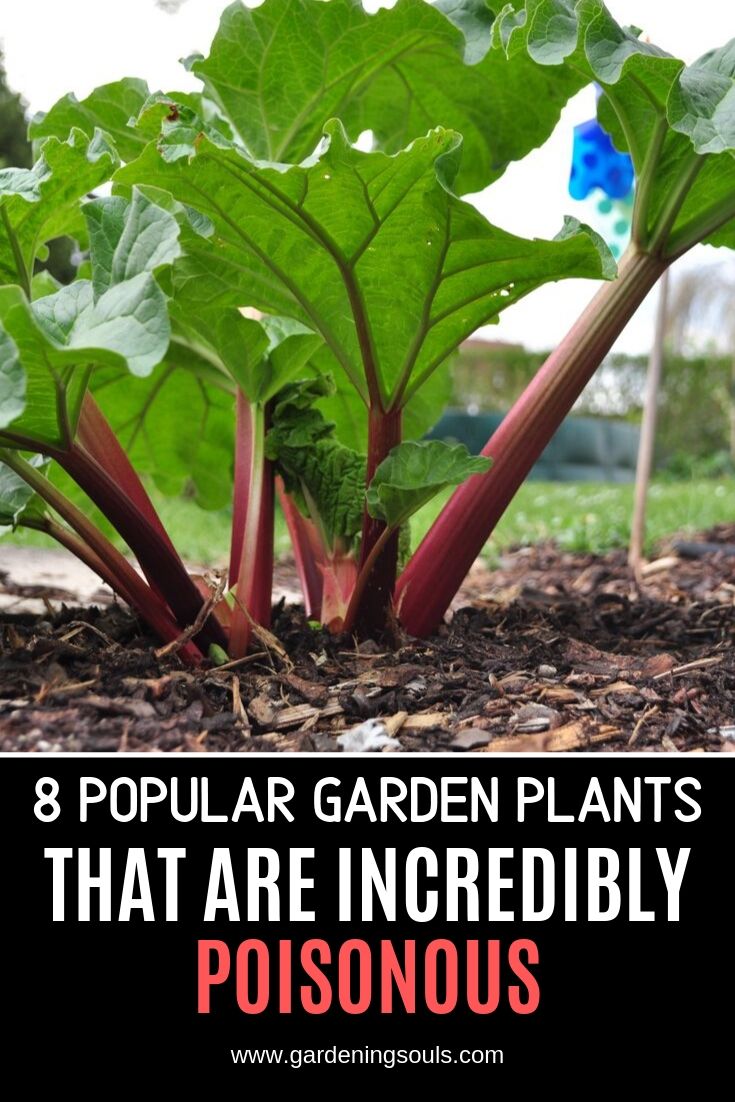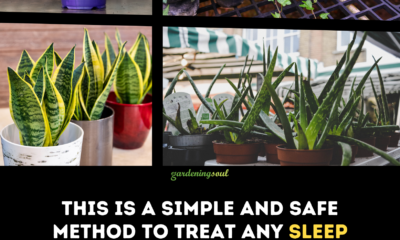GENERAL GARDENING
8 Popular Garden Plants That Are Incredibly Poisonous
Gardening, for many, is a favorite pastime. It’s a glorious combination of sun, dirt, hard work, and incredible payoff. Who doesn’t love a fresh-from-the-oven homemade strawberry rhubarb pie? And the stunning blue, pink, purple and white of the hydrangea blossom is a summer trademark. But there are several common plants, that although aesthetically pleasing, are also highly poisonous. If you have young children or pets, take note.
Here are 8 common plants that are incredibly poisonous:
1. Hydrangea
Although beautiful, this plant is toxic to cats, dogs, and horses.
According to the ASPCA, the plant contains cyanogenic glycoside, which breaks down into cyanide and can cause gastrointestinal issues such as diarrhea and vomiting.
2. Rhubarb
Confused? Here’s the distinction: While the red stalk of this tart plant is perfectly fine to ingest, it’s the leaves that are the problem. They contain oxalic acid and potentially anthraquinone glycosides, according to Medline Plus.
Ingestion of the rhubarb leaf can lead to breathing difficulty, burning in the mouth and throat, digestive problems, and, in serious cases, seizure and coma.

3. Azalea
Azaleas, although inviting and lovely, can be extremely dangerous, both to people and animals. Nectar made from this plant is known as “mad honey” because of its intoxicating effect, according to Poison Control.
Mad honey may have been to blame for the legendary poisoning of Roman troops during ancient times.
4. Bleeding Heart
While sweet, pretty and delicate, the bleeding heart blossoms can cause violent vomiting, convulsions, and skin irritations.
If you must handle this plant, be sure to wear gloves.
5. Yew
This plant is also referred to as the “tree of death”.
The yew berry is actually not toxic, however, the seed inside is so intensely toxic it will cause, almost instantly, cardiac arrest.
6. Lily of the Valley
These darling little white bells, while attractive, can cause an array of scary reactions. And it’s not just the blossoms that are toxic.
The leaves, stems, berries, and flowers can cause scary reactions like heart failure, blurred vision, frequent urination at night, lethargy, and disorientation.
7. Heartleaf Philodendron
This is another common, ordinary-looking house plant that is extremely poisonous for pets.
The ASPCA reports that oral swelling, pain, and excessive drooling as symptoms. If your dog or cat shows these symptoms, contact your veterinarian immediately!
8. Oleander
This is thought to be the most dangerous common plant of all.
All parts of this plant, including the twigs, contain toxic compounds. (Medline Plus)
Ingestion can inflict serious damage on nervous system, as well as stomach and intestines.
It can also cause a racing, irregular heart rate, poor circulation, tremors, seizures, coma, and death. It’s arguably best to remove this plant from your garden altogether. The risk isn’t worth it.
To put a finer point on it, in India, there are many cases of people consuming mashed Oleander seeds to attempt suicide.
If you want to find more natural remedies, take look at the Everyday Root Book!
With 350+ pages, you will be able to replace all of the toxic products and medications in your home with healthier, all-natural alternatives.
You will be confident in knowing exactly what is in the products your family uses and happy with the money you will save every month.
In addition, they offer you three more bonuses + 75% discount only this month!
GET THE EVERYDAY ROOTS BOOK NOW!
Included in this life changing book are:
- 105+ NATURAL HOME REMEDIES – Treat almost any illness with natural ingredients you probably already have in your kitchen.
- 75+ NATURAL BEAUTY RECIPES -Get the best hair and skin you’ve ever had and look younger with these insanely clever natural beauty recipes.
- 35+ DYI HOUSEHOLD PRODUCTS & CLEANERS – Never Buy Toxic Cleaning products again! Save a fortune and your families health with these super simple homemade cleaning products that work better than the chemical ones.
Official Website: EVERYDAYROOTSBOOK.COM
Source: gardeningsoul.com







